Charlottesville, Virginia has a long history as an environmentally conscious community, and the community’s commitment to sustainability continues to this day, including:
The City Council Vision Statement - 2025, an ambitious near-term blueprint for a greener, more sustainable future for the city that includes actionable steps to help ensure its goals are met
10-plus-year efforts to promote greater electrical vehicle (EV) adoption through grants of up to $4,000 for the installation of Level 2 chargers and up to $10,000 for the installation of DC Fast Chargers (DCFCs)
Voter- and taxpayer-backed initiatives like these reflect a high level of local support for the cause of sustainability with far-reaching implications for Charlottesville’s real estate market. In simplest terms: There are a ton of potentially relevant factors that area homeowners should probably be aware of before approaching the market.
To help ensure you achieve your goals, here are three key considerations to keep in mind before listing your home in Charlottesville, including local insights from industry veterans, Keith Smith and Greg Slater.
How might the latest trends impact timelines, priorities, motivations, and other factors that may impinge on the decision-making process for buyers and sellers alike? Most importantly, what should you do at a moment when, as Slater put it, “If you are considering interacting with this real estate market, you should know market conditions have and can always change quickly. What was true 60 days ago may not be today.”
Several things are worth noting in this regard, starting with the character of the area’s housing stock. First, net new home construction across Virginia has been falling for the past two-plus decades, with the majority of housing stock erected between 1960 and 1999. If older housing stock is on the market, renovations to improve energy costs, comfort, health, and weather resilience will be a major differentiator.
Which is a good thing, since the Charlottesville real estate market in 2023 experienced significant dips both in the number of homes sold (-28%) and in the number of homes on the market (-23%) compared to the previous period. Further, the average length of time between listing dates and sale dates for area homes shot up during the same time window.
On the flipside, home values in the area increased, the area’s 14.98% one-year home value appreciation rate is nearly double the national average. This lines up with a broader trend in the city’s real estate market: Charlottesville’s median home value remains 16% higher than the national average, coming in at $429,400 and $338,100, respectively, according to the latest data.
Smith’s takeaway? “Nobody knows for sure what’s going to happen with the market in Charlottesville, but based on my 35 years of experience, I do think the trends we’re seeing right now are going to continue — with the volume of sales decreasing and the price of homes increasing through the new year.”
Of course, this doesn’t mean that homeowners looking to sell can just pop their homes on the market and expect fantastic offers to come rolling in. For one, high mortgage rates have made many buyers cautious. The good news is, by making relatively inexpensive home performance upgrades, you’ll likely be able to more effectively position and differentiate your home in this highly competitive real estate market when it’s time to sell, and by doing so, you stand to command a higher resale value at the end of the day. Let’s look at how and why.
Related Post: 5 Ways to Upgrade Your Home and Its Appraisal Value
Interestingly, there’s reason to believe that the average ROI from even relatively modest home performance upgrades might be higher in Charlottesville than elsewhere in the country. For example, the area’s climate, while marked by seasonal shifts — hot and humid summers, cold and often snow-covered winters — is relatively mild. The risk of climate-related disruption or property damage for Charlottesville homeowners remains low: Despite consistent precipitation throughout the year, and despite Charlottesville’s relative proximity to major bodies of water, only about one-fifth of Charlottesville’s total housing stock has a one percent or higher chance of flooding in a given year.
These factors together — the area’s limited environmental risks and mild climate — make Charlottesville uniquely situated to deliver ROI from home-performance improvements. Indeed, case studies bear this out: Even without installing home solar capabilities, for example, evidence suggests that Charlottesville homeowners may be able to achieve scores as low as 33 on the Home Energy Rating System (HERS) Index (a measure of overall home energy efficiency on a scale of 0 to 150, with 0 representing a net-zero home and 150 indicating a home that meets the minimum efficiency standard). By comparison — and to give that number some useful context — most resale homes earn HERS Index score in the ballpark of 130, and homes that have earned low HERS Index scores have been shown to command proportionally higher resale prices on average.
With that in mind, certain home performance upgrades make a lot more sense than others based on the area’s demographics, climate, current real estate market, and other factors.
Let’s zero in on three low- to moderate-cost home improvements you might prioritize in the near term, each of which is notable for having a relatively short timeline to ROI, meaning they should help increase the resale value of your home when the time comes, whenever that might be.
Making a modest investment in smart home technology can pay off in many ways, including greater energy efficiency — smart thermostats with the ENERGY STAR® label alone have been shown to reduce household energy bills by around 8% on average, for example — and improve indoor air quality (IAQ) in the near term, and increase resale value down the line.
Related Post: Navigating the Smart Home Device Landscape
Replacing outdated appliances with ENERGY STAR alternatives will not only help you differentiate your home but will also lead to immediate reductions in monthly energy bills. Electric ENERGY STAR clothes dryers can reduce energy usage by 28% or more compared to standard dryers, for starters, and they may qualify for up to $840 in rebates under the terms of the Inflation Reduction Act (IRA). Most participating states are expected to roll out their IRA rebates programs mid-2024, but federal tax credits are available now.
Related Post: 4 Steps to Permanently Lower Your Energy Bills
The most practical of today’s sustainable home heating and cooling solutions for Charlottesville’s residents, air source heat pumps are up to 50% more energy efficient than traditional furnaces — and furnaces are common in Charlottesville homes, given the age of the local housing stock.
“Outdated heating systems inevitably come up in home inspections,” Smith points out, “and then you’re going to have to negotiate that on the back end.” In case you’re waffling on an investment this big, consider that the IRA has already made up to $2,000 in tax credits available for heat pumps and future rebates will be available up to $8,000.
Related Post: The Homeowner’s Definitive Guide to Heat Pumps
In the above section, we touched on the demonstrated connection between HERS Index scores and home prices at time of sale. The fact is, sustainability-based home scores and certification can be an important anchor for home resale value.
While HERS reflects a wealth of important information about home performance, it’s a snapshot taken at the time the home is built. For existing homes, Pearl Certification incorporates a HERS Index score when available and creates a living record of your home’s high-performing features — validating the quality of installation and the energy efficiency and making the value of the home upgrades visible to appraisers, real estate agents, and lenders.
Smith highlights another reason why certification is a wise move when you’re considering selling your home, too. “Real estate always comes down to six things: location, price, features, condition, timing, and who’s on the other end of the deal,” he said. “With certification, you're taking care of two items on that list — the features and condition of the home — in a way that can help improve your positioning in the market, especially given that your biggest competition might still be new construction.”
It’s also one of the reasons why Pearl Certified homes have been shown to sell for a roughly 5% premium on average. Simply looking at median home values in the Charlottesville real estate market right now, what’s more, that should translate to bottom-line value in the ballpark of $20,000 or more for most area homeowners at time of sale.
Related Post: Home Certification 101: How Pearl Certification Works
Before listing your home on the competitive Charlottesville market, there are a constellation of factors to consider, ranging from the latest market trends to the financial upside that performance improvements undertaken in the near term can deliver later at time of sale.
To quickly recap the most important takeaways for Charlottesville homeowners:
The average age of a Charlottesville home, coupled with a sluggish market and high mortgage rates may favor sellers who have invested in performance upgrades that keep costs low and comfort high.
Even relatively low-cost home performance upgrades like adding smart home technology and swapping out old appliances for new ENERGY STAR models may help your listing stand out.
Certification should be regarded as an essential piece of the puzzle for Charlottesville homeowners who want to maximize resale value.
In terms of next steps, connecting with Charlottesville-based realty professionals in our Pearl Real Estate Network like Keith Smith and Greg Slater is a smart place to begin, especially if you’re considering listing your home in the near term. You can do that through Pearl’s free app, Green Door. It has all the tools and resources you’ll need to tackle high-impact home performance improvement projects and market your home’s true value.


Pearl is transforming the housing market by scoring, verifying, and certifying the performance of homes across the country.